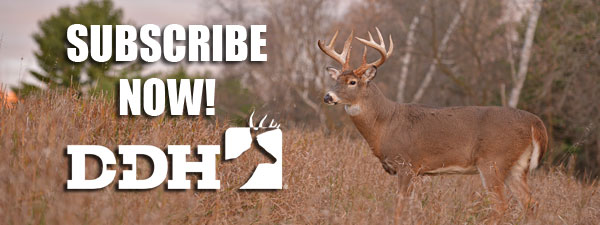The deer world lost a pioneering researcher with the recent death of Dr. Valerius Geist on July 6, 2021. He was 83.
Geist was born in Mykolaiv, Ukraine, USSR, and raised in Austria and Germany. He completed his postdoctoral studies in 1968 at Germany’s Max Planck Institute for Behavioral Physiology while studying under the guidance of Konrad Lorenz, the Nobel-prize winning zoologist from Austria. Geist spent his career conducting scientific research on the behavior and population biology of many wild ungulate species and canids. His science-based discoveries on deer and wolves are used to manage these species throughout the world. Since 1977, he was professor emeritus of environmental science at the University of Calgary, Alberta.
Geist authored countless scientific papers and more than 14 books, including “Deer of the World: Their Evolution, Behavior and Ecology” (1998, Stackpole). Including more than 1,300 scientific references, this book is widely considered to be the authoritative reference for deer researchers, scientists, hunters, game managers and wildlife watchers. Geist was also a longtime consultant and contributor to Deer & Deer Hunting Magazine.

More than anyone, Geist was a driving force behind the North American Model of Wildlife Conservation, which include these seven tenets (expanded upon by the U.S. Fish & Wildlife Service):
- Wildlife is a public resource. In the Unites States, wildlife is considered a public resource, independent of the land or water where wildlife may live. Government at various levels have a role in managing that resource on behalf of all citizens and to ensure the long-term sustainability of wildlife populations.
- Markets for game are eliminated. Before wildlife protection laws were enacted, commercial operations decimated populations of many species. Making it illegal to buy and sell meat and parts of game and nongame species removed a huge threat to the survival of those species. A market in furbearers continues as a highly regulated activity, often to manage invasive wildlife.
- Allocation of wildlife by law. Wildlife is a public resource managed by government. As a result, access to wildlife for hunting is through legal mechanisms such as set hunting seasons, bag limits, license requirements, etc.
- Wildlife can only be killed for a legitimate purpose. Wildlife is a shared resource that must not be wasted. The law prohibits killing wildlife for frivolous reasons.
- Wildlife species are considered an international resource. Some species, such as migratory birds, cross national boundaries. Treaties such as the Migratory Bird Treaty and CITES recognize a shared responsibility to manage these species across national boundaries.
- Science is the proper tool for discharge of wildlife policy. In order to manage wildlife as a shared resource fairly, objectively and knowledgeably, decisions must be based on sound science such as annual waterfowl population surveys and the work of professional wildlife biologists.
- The democracy of hunting. In keeping with democratic principles, government allocates access to wildlife without regard for wealth, prestige or land ownership.
His studies on wolves are among the most cited in today’s scientific literature. Geist was of the opinion that wolves are most likely to fulfill their ecological function in unpopulated and very thinly populated areas. His publications on wolves include as topics also the development of great shyness toward humans by hunting, hybridization with coyotes, where distribution areas of both species overlap, hybridization with domestic dogs in areas populated by humans, and diseases spread by wolves, for example the dog tapeworm, whose larval stages lead to Hydatid disease in herbivores and humans. By triggering panicky flight behavior in deer packs and causing them to migrate, wolves promote the spread of chronic wasting disease (CWD).
In his lectures and writings he points out that wolves cause serious damage to wildlife and that they cause great suffering to wild ungulates such as white-tailed deer, wapiti, elk and bison by condemning them to a slow, agonizing death. The paradigm of the self-regulation of nature is, according to his findings, a simple-minded intellectual error. The mechanisms of negative feedback assumed in this concept would not work like this in nature, but self-reinforcing effects would lead to a decline in biodiversity. With active wildlife management and care, humans can achieve a much greater biodiversity and productivity of ecosystems. Humans can save the game the brutality of getting torn by wolves. Hunters practicing ethical hunting would treat game far more humanely than “nature” does.
Geist’s honors include the 2004 Wilderness Defenders Award. He is also the only North American hunter to be honored with professional membership in both the Boone and Crockett Club and its European counterpart, the International Council for Game and Wildlife Conservation.
References: Deer of the World (1998); Wikipedia (Aug. 2021); University of Calgary, U.S. Fish & Wildlife Service.

